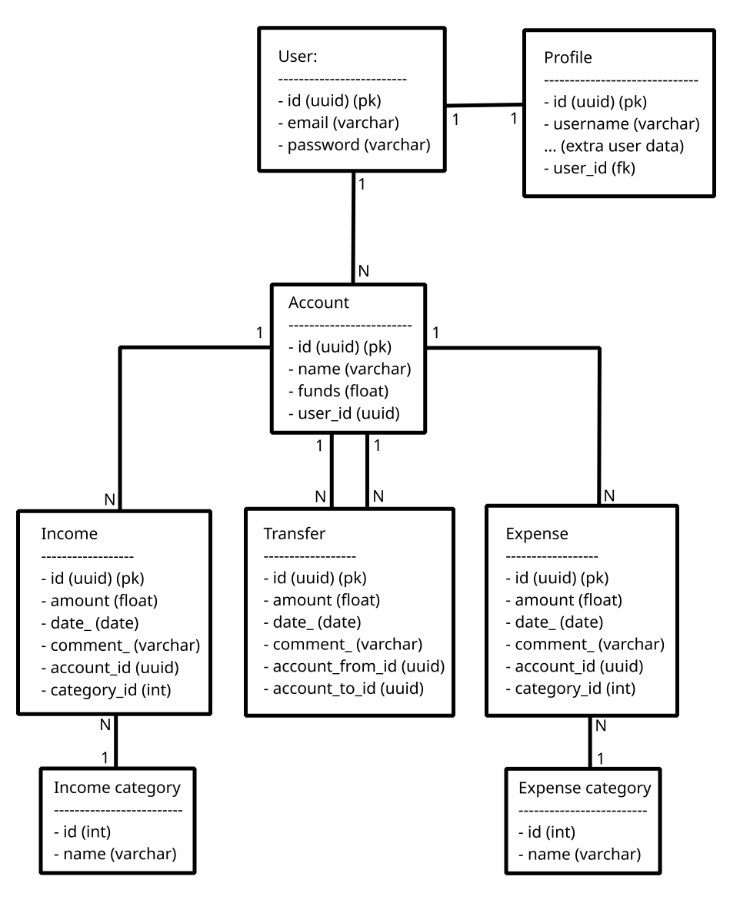Hello! Let me first clarify, this is for a personal project, based on an idea I always use to learn all kinds of things: personal finance tracking.
The DB model I typically use looks something like this:

Initially, I made the decision to separate incomes, expenses and transfers into separate tables, which makes sense to me, according to the way I learned DB normalization.
But I was wondering if there is any benefit in somehow mixing the expense and income tables (since they are almost identical, and any code around these is always almost identical), or even all 3 (expense, income and transfer). Maybe it is more convenient to have the data modeled like this this for an API, but for BI or analytics, a different format would be more convenient? How would such format look like? Or maybe this would be better for BI and analytics, but for an API it’s more convenient to have something different?
A while ago at a previous job, an experienced software architect once suggested, for a transactional system, to separate the transactional DB from a historical DB, and continuously migrate the data differences through ETL’s. I have always thought that idea is pretty interesting, so I wonder if it makes sense to try in my little personal project.
If it was you, how would you model personal finance tracking? Is there something you think I may be missing, or that I should look into for DB modeling?
(Note: I intentionally do not track loans / investments, or at least I have not tried to integrate it for the sake of simplicity, and I have no interest in trying YET.)


Protip: See if you can generate an Export from your bank and base your tables on that instead!
A friend wanted to make a personal finance tracking application because he wanted to know where his money disappeared to, but I told him that he’d get bored from tracking all the price lists he’d have to insert, so I recommended creating an export, load that in a DB and then use Grafana to generate some graphs, and he’s been quite happy with that.
Of course that’s not quite about what you’re asking, since this is about learning, but just sharing an idea :)
I appreciate the advice, I totally understand what you mean! The banks I have are pretty transparent with all my transactions in the last few months. I am also pretty diligent in regularly recording everything for myself, so I don’t rely on the banks for visibility on historical data. I’m the kind of person that would encourage you to do that, if we ever had a conversation about personal finance lol. I always try it as a concept for learning, say, a new framework because I’m familiar with the pain of doing it (not that my test projects are better than raw excel lol, but you get the idea).
Lately I kinda put in question the model I’ve been using and, after checking some of the answers here, I actually do want to learn a bit more about accounting practices, make something a bit more robust, closer to what would be expected from accounting software. I think it would be interesting to do something simple, hopefully something that would be useful to me.